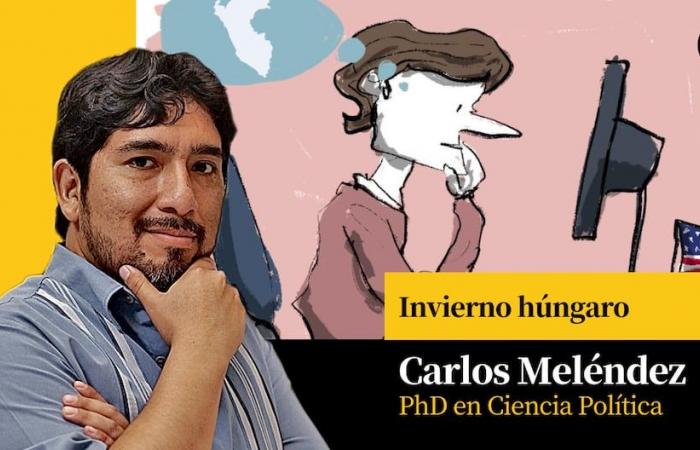About 20 years ago, I started doing field work outside the country. He interviewed politicians from neighboring countries, in order to understand their reactions to convulsed societies. They were the years of the left turn in the region, of the predominance of socialism of the 21st century, and a market economic model that began to be questioned by its limits in social redistribution. To summarize my research journey, I used to say that, to understand Bolivia, it was better to be an anthropologist; To explain Chile, it was enough with the instruments of political science; And that, to analyze Peru, sociology was better equipped. I explain: Bolivian society was mobilized by collective identities linked by ethnic links. The emergence of Evo Morales was not an any union activism, but an identity claim of telluric roots that only anthropology could unravel. For its part, the Chilean Social Pact founded on the democratic transition – authoritarian enclaves and economic optimism – began to show signs of cracking; But in a highly formal society, where individuals are governed by unquestionable rules, political science complies with explaining the functioning of the respective institutions and raising necessary corrective adjustments. Finally, a highly informalized society such as Peruvian, where institutions are overwhelmed by individualities and not by groups, sociology should be thinner for diagnosis. Two decades later, institutional political science suffers to understand the Post outbreak of Chilean.
I evoke these comparativist annotations, because they partly explain my dissatisfaction with Peruvian political production. Step by the policy sections of Lima bookstores and the titles of the latest politological production are concentrated in describing our political regime, which seems like a consensus, “it is no longer democracy.” According to the brave colleagues, Peruvian democracy has been “taken”, “assaulted” or has simply “collapsed.” Sophisticated indices such as V-DeM (which are surveys conducted to the same colleagues), public opinion databases such as the Alatricas Barometer (although in a descriptive way; without making a single regression!), United electoral results (feasible of ecological fallacies), among other figures) are used. Recently, an essay published in English states that we are going through a “legislative authoritarianism”, although the justifications are questionable. For example, how does an alleged “congressional dictatorship” forgive its most political archirival and not constitutionally disable them to compete in elections? Why the “Fujimorista authoritarianism” in Congress ended up shielding Martín Vizcarra and Salvador del Solar? Since when “the dictators are democratic”? Something, doesn’t fit me.
Peruvian political scientists are studying institutions by obviating society. They put the emphasis on alleged wills of political elites, because in them – consistors, Palaciegos tenants – they are able to shape, reform and deform institutions. But the unknown (for my colleagues) is immediately stigmatized: the circumstantial compound between benches is high to the category of “dictatorship”, a transfugas tingado to that of “mafia”, the legislation that is not progressive as “counter -reform.” Interpretations are committed that make no sense: “power fades”, “authoritarianisms are ephemeral.” In fact, this deep ignorance of what happens in society, erroneously leads them to “innovate” concepts and discover warm water. The “democratic emptying” is nothing other than the polarized pluralism of Sartori, the “coalition of independents” is the minimum definition of party of the same Italian classic. These conceptual juggles only reflect their inability to understand, what I have called, popular erosion. They even dare to extrapolate theories for the neighborhood who, in their own words, know as “tourists.” In the same style of the ‘Gordo’ Casaretto, they usually launch Profusely “I warn you” for the rest of Latin America.
What is this type of artificial but rimbombante analysis then? By not reaching the level of the analysis, they remain in the moralistic dimension, which is a frequent temptation in polarized contexts. Our republic is “hostage”, the State is “perforated.” Everything that happens in national politics, according to the academic establishment, has been “assault.” Hand up! Unfortunately, they stop producing scientific knowledge and are limited to essays for indignation, self -help manuals for civility that new generations take them as “classics.” This is how political science ceases to be scientific. He turns in Partisana. In fact, polariza and in the “best” way, moralizing democracy. It is no longer political science.
We are talking about a discipline that, in our country, has been a autonomous branch of law for 20 years and has already trained several cohorts. The balances that appear are not auspicious. While the Peruvian University (especially private) has been socially democratized, its ideas have been annoyed. It is known that in the history of ideas you do not advance without parricide, but the (not so) young colleagues who return from Trumplandia with the phd under the arm are too similar to their teachers. It is a lost opportunity because this social democratization of the Peruvian University can allow to rewrite social sciences (not only politics) from another place within social hierarchies. From other experiences, from other frustrations, different from those of the intellectual bourgeoisies that have failed, again and again, in their task of understanding the country. But the Peruvian academic establishment sanctions the dissent of thought, deviationism of progressive orthodoxy, the daring to say “teacher, is wrong.” Rewards the pitching contumacy. The consequences are what we see in the public arena. Not casually the legal initiative of the College of Politologists – organized in the halls of humble political science – went unnoticed by the scholars of reforms and counter -reforms, and had as its only late response – it is new novelty – stigmatization. Establishment politics, turtles escape.
*Commerce opens its pages to the exchange of ideas and reflections. In this plural framework, the newspaper does not necessarily coincide with the opinions of the articulists who sign them, although it always respects them.






